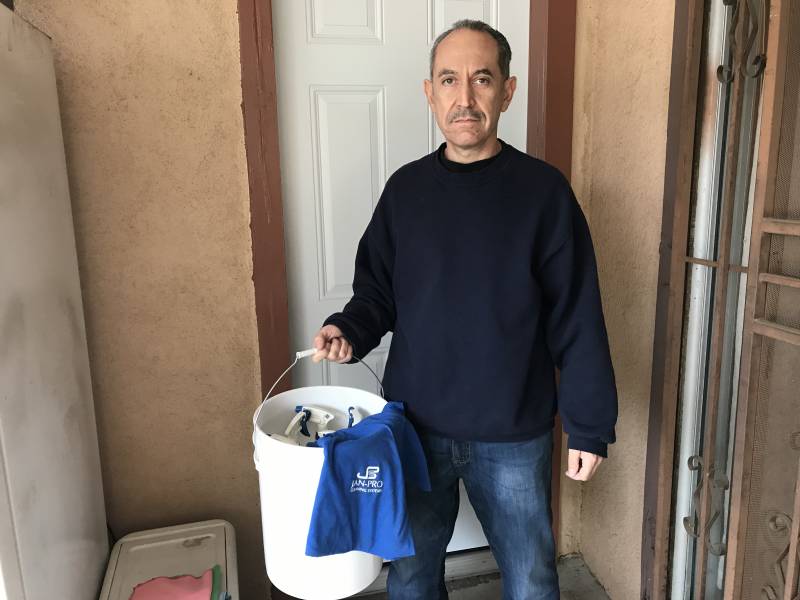These days, It can be a lot harder to find what you might call a “good” job. The kind of job where a person is employed by one company and gets things like health insurance, paid sick days, and at least minimum wage. Today, all kinds of businesses from Uber to janitorial companies argue they’ve come up with something better: “gig work,” in which workers are independent contractors, not employees.
But some workers in California are pushing back against the “gig economy. ” After Jerry Vasquez started working as a janitor, with a business that promised he’d be his own boss, he began to question just how independent he really was.
This week we’re talking with Krissy Clark, host of Marketplace’s documentary podcast “The Uncertain Hour.” She features Jerry’s story in her special series, “This Thing We Used to Call Employment.” She says what happened to him could have a huge impact on the lives of hundreds of thousands of Americans, and our whole economy.

